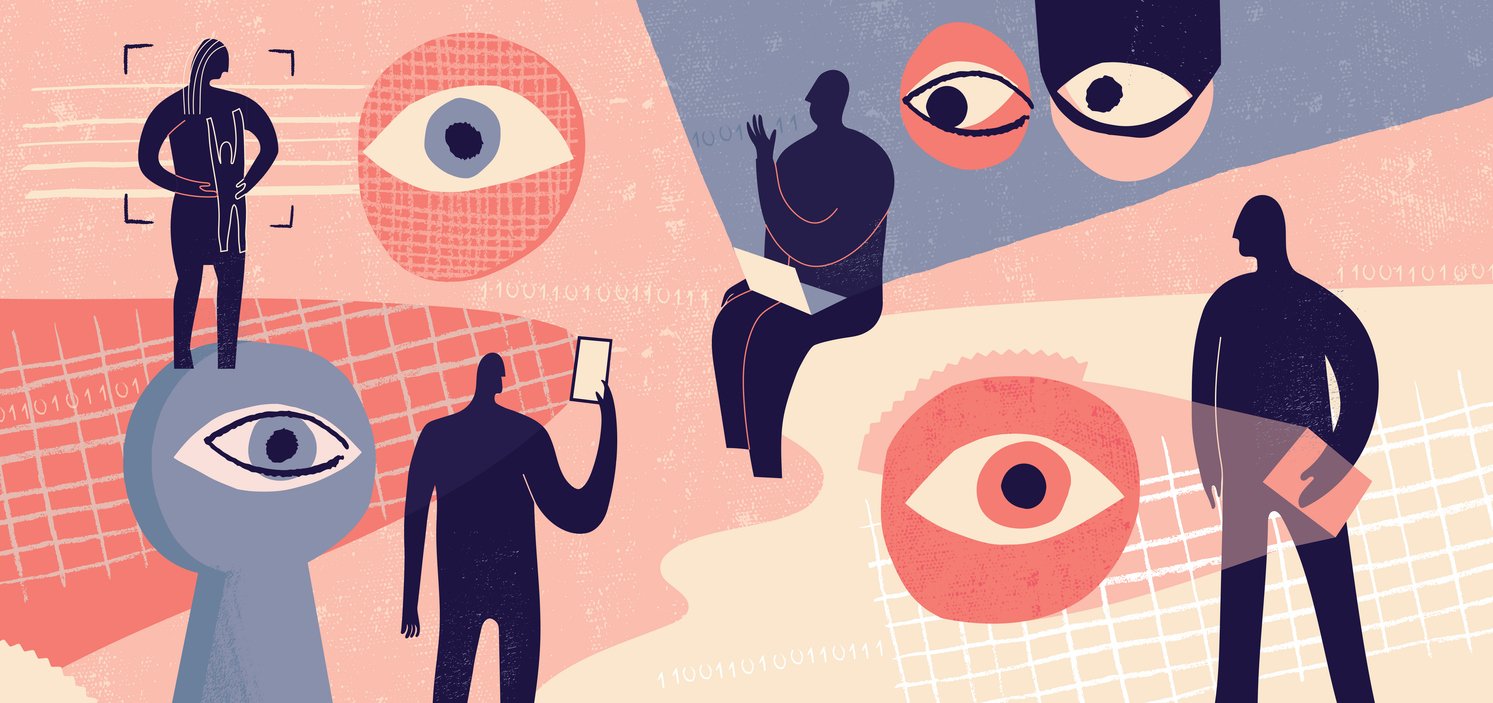Including People with Lived Experience (PWLE) – Thoughtfully
Governmental, health, and social services agencies are talking more and more about people with lived experience, or PWLE. It is essential to include the people with the experience in research and action related to health, public health, and social determinants of health. But it’s also important to carefully consider what is meant by “inclusion,” and to ensure the term and its initialism do not become an objectifying shorthand.
At the time of DASH’s first funding round in 2016, a focus on social determinants of health was fairly new for multisector data-sharing collaborations. Today this practice has become widespread and established, thanks to technological innovation, information-sharing incentives, and evolving policy priorities, as well as the efforts of DASH and similar initiatives.
While providing assistance to new collaboratives is still an important part of our work, much of our focus has shifted toward supporting established collaboratives in shifting their mindsets and practices to center equity.
Sharing data across sectors naturally promotes equity to some degree, in that it can reduce barriers and missed opportunities. But it’s quite possible, and in fact common, to collect, interpret, and share data without consideration for the people the data represents—not to mention the people the data fails to capture.
Multisector health data ecosystems can’t promote equity if the people with the lived experience behind the data go unheard.
Who is a person with lived experience?
A good consensus definition of “person with lived experience” comes from the Engaging with People with Lived Experience Toolkit. The toolkit was developed by the People with Lived Experience Workgroup and Community Champions from the 100 Million Healthier Lives initiative.
“A person with lived experience is someone who has lived (or is currently living) with the issues the community is focusing on and who may have insight to offer about the system as it is experienced by consumers (e.g., a woman who was formerly or is currently experiencing homelessness who can offer insight into that experience). They will have:
• Expertise that doesn’t come from training or formal education.
• Knowledge from an experience with an issue or challenge.
• Direct experience with a system, process, or issue, or trying to engage with a resource.
• Awareness of what works, what doesn’t work, and what resources (formal or informal) are available in the community.”
What engaging PWLE means
Engaging people with lived experience means establishing authentic relationships between communities and the agencies that serve them. This engagement must be based on time, trust, fair compensation, and equal partnership roles from the very start of any program development.
When a researcher or program developer acts in partnership with a community, they do not merely extract research for the purposes of a journal, talk, grant, or research paper, never to be seen again. Instead, they co-develop the research question and methodology with community members, co-interpret the results and their implications with community members, co-plan action steps with community members, and see that research brought back home to the community.
Conversely, engaging people with lived experience does not mean asking community to review an already-designed program when it is too late to make meaningful change. It does not mean inviting a single individual to speak at a luncheon as a special guest or spectacle. It is not about asking community-member proxies such as CBO administrators for input (they may well be helpful partners, but they serve a different role).
Developing partnerships with people with lived experience strengthens relationships and builds trust between people and institutions. It facilitates the sharing of data across sectors and authentic interpretation of data that make public health outcomes better. And it tells communities that the organizations that work with them value their humanity and respect their wisdom.
Ultimately, authentically engaging people with lived experience shifts agency, leadership, and other sources of power to the people who know best what is needed to address their community’s challenges.
A history of power-sharing
The notion of power-sharing with people with lived experience can be captured in the phrase Nothing about us without us. That cry, which originated half a millennium ago in European community-empowerment movements, was reclaimed and widely popularized in the 1990s by the Disability Rights Movement. The idea is that people with disabilities know best what they need and should therefore be involved in any policy and practice related to their lives.
That punchy, powerful phrase has now been adopted on a federal level as a call to action for improving health research. It has also been taken up by other communities, such as people experiencing mental health challenges, people experiencing homelessness, and social science researchers seeking to critically reframe their work.
While “Nothing about us” emerged from the disability rights movement, “People with lived experience,” or “PWLE,” emerged amongst clinical researchers doing work around mental health and healthcare. The point of the phrase is to make visible and powerful those who are conventionally sidelined, spoken over, spoken about, spoken down to, or ignored. Use of the concept has been adopted widely, including by researchers and advocates around homelessness, substance misuse and harm reduction, youth development, and many others.
A PWLE by any other name...
In general, terms have their merits. For one, it can be refreshing and grounding to find a pithy way to define something you didn’t quite have the language to express before.
Terms can also create a sense of belonging among those who choose to apply the shorthand to themselves–similar to how strangers might quickly relate to one another upon discovering that they’re both ‘cheeseheads’ (i.e., fans of the Green Bay Packers football team).
But it’s important to keep in mind that there are potential drawbacks to using a term to define a group of people. In fact, a term that functions as shorthand is just a label. And labeling people tends to be problematic.
Like caricatures, labels reduce the vast complexity of a person to a single feature, and like photographs, labels fix a person at a single point in time through the eyes of someone else. Put simply, people are complex, changing, and capable, and labels tend to suggest otherwise.
Of course, “PWLE” can be useful. The term can cover a variety of roles, from program designers to peer supports to care-team members. Indeed, some studies by organizations and researchers show that, when asked, people with lived experience tend to prefer being referred to this way over “patient,” “consumer,” and other terms.
That said, many programs that embody the principles and practice of power-sharing seem not to reference “people with lived experience” or “PWLE” much at all, referring to people instead by the role they have in the work: community partners, community researchers, advisory board members, staff members, peer advisors, trainers, and so on.
Take, for example, CBPR (community-based participatory research) and PAR (participatory action research). Both embody the philosophy of centering power and agency with the people directly affected by the issues at hand.
Case in point is Nola C.A.R.E.S., a power-sharing community development project hosted by New Orleans-based nonprofit Beloved Community and other regional collaborators. At Nola C.A.R.E.S., the people with the lived experience are referred to (and refer to themselves) by their roles (“community researchers” or “PAR researchers,”) or sometimes as just “community.”
Or consider Asset Based Community Development (ABCD). With the ABCD model, practitioners invite people with lived experience of community challenges, who they refer to as “participants” and “community members,” to identify and map the human, social, and environmental assets in the community. Practitioners then work with participants to facilitate the development of skills and strategies for using those assets to effect positive change.
One long-standing example of ABCD is Minneapolis’s Mercado Central. This vibrant, visibly striking indoor marketplace was developed by and for the Latino community of Southwest Minneapolis in a once-neglected and abandoned venue. Opened in 1999, it is still thriving today, and remains a cornerstone of neighborhood revitalization and community pride.
Another great example of power-sharing includes Chicago’s COFI (Community Organizing and Family Issues), which has trained parents as leaders and organizers since the ‘90s based on the foundational belief that parents are best equipped to resolve issues affecting their families and communities. COFI’s “PWLE” are referred to as “parents” or as their program roles, e.g., trainees, trainers, advocates, program developers, campaigners, and leaders.
Our goal
A major 2024-2025 goal at DASH is to support data collaboratives as they develop the stances and structure needed to involve community members with lived experience in the full spectrum of their work, from research through program development, implementation, interpretation, and response.
Our Data Modernization Initiative work, our ABCD webinars, and our Incubator program all share this aim, as do some additional upcoming efforts in the works.
Amidst this work, we, too, have been having internal discussions about when, why, and how to use terms such as “people with lived experience” and “PWLE”. As does any player in the public health and social health communities, we must take care not to replace one form of objectification with another.
If you are interested in engaging people with lived experience more authentically in your work, check out the embedded links above, as well as these additional resources offering different ways to track and measure your work:
Facilitating Power’s Spectrum of Community Engagement to Ownership
HealthLeads, 211/CIE San Diego, and California Children’s Trust “CIE® Data Equity Framework





